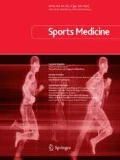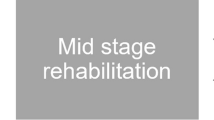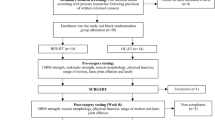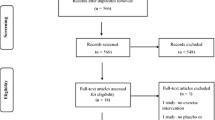Abstract
This article presents a literature review of the current recommendations regarding sports after total joint replacement and also suggests scientifically based guidelines. Patients should be encouraged to remain physically active for general health and also for the quality of their bone. There is evidence that increased bone quality will improve prosthesis fixation and decrease the incidence of early loosening. To recommend a certain activity after total knee or hip replacement, factors such as wear, joint load, intensity and the type of prosthesis must be taken into account for each patient and sport. It has been shown that the reduction of wear is one of the main factors in improving long-term results after total joint replacement. Wear is dependent on the load, the number of steps and the material properties of total joint replacements. The most important question is, whether a specific activity is performed for exercise to obtain and maintain physical fitness or whether an activity is recreational only. To maintain physical fitness an endurance activity will be performed several times per week with high intensity. Since load will influence the amount of wear exponentially, only activities with low joint loads such as swimming, cycling or possibly power walking should be recommended. If an activity is carried out on a low intensity and therefore recreational base, activities with higher joint loads such as skiing or hiking can also be performed. It is unwise to start technically demanding activities after total joint replacement, as the joint loads and the risk for injuries are generally higher for these activities in unskilled individuals. Finally, it is important to distinguish between suitable activities following total knee and total hip replacement. To recommend suitable physical activities after total knee replacement, it is important to consider both the load and the knee flexion angle of the peak load, while for total hip replacement, which involves a ball and socket joint, the flexion angle does not play an important role. During activities such as hiking or jogging, high joint loads occur between 40 and 60° of knee flexion where many knee designs are not conforming and high polyethylene inlay stress will occur. Regular jogging or hiking produces high inlay stress with the danger of delamination and polyethylene destruction for most current total knee prostheses. Based on these design differences between hip and knee replacements it is prudent to be more conservative after total knee arthroplasty than after total hip arthroplasty for activities that exhibit high joint loads in knee flexion.




Similar content being viewed by others
References
Healy WL, Iorio R, Lemos MJ. Athletic activity after total knee arthroplasty. Clin Orthop 2000 Nov; (380): 65–71
Barry HC, Eathorne SW. Exercise and aging: issues for the practitioner. Med Clin North Am 1994 Mar; 78 (2): 357–76
Dubs L, Gschwend N, Munzinger U. Sport after total hip arthroplasty. Arch Orthop Trauma Surg 1983; 101 (3): 161–9
Gschwend N, Frei T, Morscher E, et al. Alpine and cross-country skiing after total hip replacement: 2 cohorts of 50 patients each, one active, the other inactive in skiing, followed for 5–10 years. Acta Orthop Scand 2000 Jun; 71 (3): 243–9
Kilgus DJ, Dorey FJ, Finerman GA, et al. Patient activity, sports participation, and impact loading on the durability of cemented total hip replacements. Clin Orthop 1991 Aug; (269): 25–31
Mallon WJ, Callaghan JJ. Total hip arthroplasty in active golfers. J Arthroplasty 1992; 7: 339–46
Mallon WJ, Callaghan JJ. Total knee arthroplasty in active golfers. J Arthroplasty 1993; 8: 299–306
Mont MA, La Porte DM, Mullick T, et al. Tennis after total hip arthroplasty. Am J Sports Med 1999 Jan-Feb; 27 (1): 60–4
Widhalm R, Hofer G, Krugluger J, et al. Is there greater danger of sports injury or osteoporosis caused by inactivity in patients with hip prosthesis? Sequelae for long-term stability of prosthesis anchorage [in German]. Z Orthop Ihre Grenzgeb 1990 Mar-Apr; 128 (2): 139–43
Visuri T, Honkanen R. Total hip replacement: its influence on spontaneous recreation exercise habits. Arch Phys Med Rehabil 1980 Jul; 61 (7): 325–8
Chandler HP, Reineck FT, Wixson RL, et al. Total hip replacement in patients younger than thirty years old: a five-year follow-up study. J Bone Joint Surg Am 1981 Dec; 63 (9): 1426–34
Collis DK. Cemented total hip replacement in patients who are less than fifty years old. J Bone Joint Surg Am 1984 Mar; 66 (3): 353–9
Dorr LD, Takei GK, Conaty JP. Total hip arthroplasties in patients less than forty-five years old. J Bone Joint Surg Am 1983 Apr; 65 (4): 474–9
Huddleston HD. Femoral lysis after cemented hip arthroplasty. J Arthroplasty 1988; 3 (4): 285–97
Maloney WJ, Jasty M, Harris WH, et al. Endosteal erosion in association with stable uncemented femoral components. J Bone Joint Surg Am 1990 Aug; 72 (7): 1025–34
Malchau H, Herberts P, Ahnfelt L. Prognosis of total hip replacement in Sweden: follow-up of 92,675 operations performed 1978–1990. Acta Orthop Scand 1993 Oct; 64 (5): 497–506
Ranawat CS, Padgett DE, Ohashi Y. Total knee arthroplasty for patients younger than 55 years. Clin Orthop 1989 Nov; (248): 27–33
Stern SH, Bowen MK, Insall JN, et al. Cemented total knee arthroplasty for gonarthrosis in patients 55 years old or younger. Clin Orthop 1990 Nov; (260): 124–9
Diduch DR, Insall JN, Scott WN, et al. Total knee replacement in young, active patients: long-term follow-up and functional outcome. J Bone Joint Surg Am 1997 Apr; 79 (4): 575–82
Mintz L, Tsao AK, McCrae CR, et al. The arthroscopic evaluation and characteristics of severe polyethylene wear in total knee arthroplasty. Clin Orthop 1991 Dec; (273): 215–22
Knutson K, Lewold S, Robertsson O, et al. The Swedish knee arthroplasty register: a nation-wide study of 30,003 knees 1976–1992. Acta Orthop Scand 1994 Aug; 65 (4): 375–86
Ries MD, Philbin EF, Groff GD, et al. Improvement in cardiovascular fitness after total knee arthroplasty. J Bone Joint Surg Am 1996 Nov; 78 (11): 1696–701
Robertsson O, Dunbar M, Pehrsson T, et al. Patient satisfaction after knee arthroplasty: a report on 27,372 knees operated on between 1981 and 1995 in Sweden. Acta Orthop Scand 2000 Jun; 71 (3): 262–7
Rougraff BT, Heck DA, Gibson AE. A comparison of tricompartmental and unicompartmental arthroplasty for the treatment of gonarthrosis. Clin Orthop 1991 Dec; (273): 157–64
Ries MD, Philbin EF, Groff GD, et al. Effect of total hip arthroplasty on cardiovascular fitness. J Arthroplasty 1997 Jan; 12 (1): 84–90
Bradbury N, Borton D, Spoo G, et al. Participation in sports after total knee replacement. Am J Sports Med 1998 Jul-Aug; 26 (4): 530–5
Kuster MS, Grob K, Gachter A. Knee endoprosthesis: sports orthopedics possibilities and limitations [in German]. Orthopade 2000 Aug; 29 (8): 739–45
Kuster MS, Spalinger E, Blanksby BA, et al. Endurance sports after total knee replacement: a biomechanical investigation. Med Sci Sports Exerc 2000 Apr; 32 (4): 721–4
Riepenhausen U. Sports following endoprosthetic joint replacement [in German]. Z Orthop Ihre Grenzgeb 1997 Mar-Apr; 135 (2): Oa16–7
Rutten M. Rowing with an endoprosthesis of the hip (author’s translation) [in German]. Z Orthop Ihre Grenzgeb 1979 Oct; 117 (5): 830–2
Steinbruck K, Gartner BM. Total hip prosthesis and sport (author’s translation) [in German.]. MMW Munch Med Wochenschr 1979 Sep 28; 121 (39): 1247–50
Dorr LD. Arthritis and athletics. Clin Sports Med 1991 Apr; 10 (2): 343–57
McGrory BJ, Stuart MJ, Sim FH. Participation in sports after hip and knee arthroplasty: review of literature and survey of surgeon preferences. Mayo Clin Proc 1995 Apr; 70 (4): 342–8
Cirincione RJ. Sports after total joint replacement. Md Med J 1996 Aug; 45 (8): 644–7
Willert HG. Reactions of the articular capsule to wear products of artificial joint prostheses. J Biomed Mater Res 1977 Mar; 11 (2): 157–64
Schmalzried TP, Callaghan JJ. Wear in total hip and knee replacements. J Bone Joint Surg Am 1999 Jan; 81 (1): 115–36
Horikoshi M, Macaulay W, Booth RE, et al. Comparison of interface membranes obtained from failed cemented and cementless hip and knee prostheses. Clin Orthop 1994 Dec; (309): 69–87
Ritter MA, Herbst SA, Keating EM, et al. Long-term survival analysis of a posterior cruciate-retaining total condylar total knee arthroplasty. Clin Orthop 1994 Dec; (309): 136–45
Kuster MS, Stachowiak GW. Factors affecting polyethylene wear in total knee replacement. Orthopedics 2002 Feb; 25 (2 Suppl.): S235–42
Seedhom BB, Wallbridge NC. Walking activities and wear of prostheses. Ann Rheum Dis 1985 Dec; 44 (12): 838–43
Schmalzried TP, Szuszczewicz ES, Northfield MR, et al. Quantitative assessment of walking activity after total hip or knee replacement. J Bone Joint Surg Am 1998 Jan; 80 (1): 54–9
Schmalzried TP, Shepherd EF, Dorey FJ, et al. The John Charnley Award: wear is a function of use, not time. Clin Orthop 2000 Dec; (381): 36–46
Kuster MS, Wood GA, Stachowiak GW, et al. Joint load considerations in total knee replacement. J Bone Joint Surg Br 1997 Jan; 79 (1): 109–13
Hilding MB, Lanshammar H, Ryd L. Knee joint loading and tibial component loosening: RSA and gait analysis in 45 osteoarthritic patients before and after TKA. J Bone Joint Surg Br 1996 Jan; 78 (1): 66–73
Bergmann G, Rohlmann A, Graichen F. In vivo measurement of hip joint stress. 1: physical therapy [in German]. Z Orthop Ihre Grenzgeb 1989 Nov-Dec; 127 (6): 672–9
Bergmann G, Graichen F, Rohlmann A. Hip joint loading during walking and running, measured in two patients. J Biomech 1993 Aug; 26 (8): 969–90
Stansfield BW, Nicol AC. A comparison of the forces developed at the hip joints of normal and total hip replacement subjects. Proceedings of XVIIIth Congress of the International Society of Biomechanics; 2001 Jul 8–13; Zürich, 298
Nigg BM, van den Bogert AJ, Read L, et al. Load on the locomotor system during skiing. In: Müller E, Schwameder H, Kornexl E, et al., editors. Science and skiing. London: E&FN Spon, 1997: 27–35
Fitzsimmons AM, Nicol AC, Lane J, et al. Hip joint loading during activities of daily living. Proceedings of XVth Congress of the International Society of Biomechanics; 1995 Jul 2–6, Jyväskylä
Morrison JB. The mechanics of the knee joint in relation to normal walking. J Biomech 1970 Jan; 3 (1): 51–61
Paul JP. Force actions transmitted by joints in the human body. Proc R Soc Lond B Biol Sci 1976 Jan 20; 192 (1107): 163–72
Harrington IJ. A bioengineering analysis of force actions at the knee in normal and pathological gait. Biomed Eng 1976 May; 11 (5): 167–72
Ericson MO, Nisell R. Tibiofemoral joint forces during ergometer cycling. Am J Sports Med 1986 Jul-Aug; 14 (4): 285–90
Morrison JB. Function of the knee joint in various activities. Biomed Eng 1969 Dec; 4 (12): 573–80
Wyss UP, Costigan PA, Olney SJ, et al. Bone-on-bone forces at the knee joint during walking and stair climbing. Proceedings of XIVth Congress of the International Society of Biomechanics; 1993 Jul 4–8; Paris, 3
Andriacchi TP, Andersson GB, Fermier RW, et al. A study of lower-limb mechanics during stair-climbing. J Bone Joint Surg Am 1980 Jul; 62 (5): 749–57
Dahlkvist NJ, Mayo P, Seedhom BB. Forces during squatting and rising from a deep squat. Eng Med 1982 Apr; 11 (2): 69–76
Nisell R. Mechanics of the knee: a study of joint and muscle load with clinical applications. Acta Orthop Scand Suppl 1985; 216: 1–42
Winter DA. Moments of force and mechanical power in jogging. J Biomech 1983; 16 (1): 91–7
Scott SH, Winter DA. Internal forces of chronic running injury sites. Med Sci Sports Exerc 1990 Jun; 22 (3): 357–69
Brunner F. Knee joint forces during bowling on asphalt alleys. Proceedings of XIVth Congress of the International Society of Biomechanics; 1993 Jul 4–8; Paris, 53
Haid C, Müller E, Raschner C. Forces in the knee joint during the steering phase in alpine skiing. Proceedings of XIVth Congress of the International Society of Biomechanics; 1993 Jul 4–8; Paris, 530–1
Porcari J, McCarron R, Kline G. Is fast walking an adequate aerobic training stimulus in 30–69 year old adults? Phys Sport Med 1987; 15: 119–29
Duncan JJ, Gordon NF, Scott CB. Women walking for health and fitness: how much is enough? JAMA 1991 Dec 18; 266 (23): 3295–9
Ericson M. On the biomechanics of cycling: a study of joint and muscle load during exercise on the bicycle ergometer. Scand J Rehabil Med Suppl 1986; 16: 1–43
Ericson MO, Bratt A, Nisell R, et al. Load moments about the hip and knee joints during ergometer cycling. Scand J Rehabil Med 1986; 18 (4): 165–72
Buczek FL, Cavanagh PR. Stance phase knee and ankle kinematics and kinetics during level and downhill running. Med Sci Sports Exerc 1990 Oct; 22 (5): 669–77
Schwameder H, Roithner R, Muller E, et al. Knee joint forces during downhill walking with hiking poles. J Sports Sci 1999 Dec; 17 (12): 969–78
Collins JJ. Antagonistic-synergistic muscle action at the knee during competitive weightlifting. Med Biol Eng Comput 1994 Mar; 32 (2): 168–74
Economic benefits of the health-enhancing effects of physical activity: first estimates for Switzerland [position statement]. Sportmedizin Sportraumatol 2001 Nov; 49 (3): 131–3
de Loes M. Epidemiology of sports injuries in the Swiss organization ’Youth and Sports’ 1987–1989: injuries, exposure and risks of main diagnoses. Int J Sports Med 1995 Feb; 16 (2): 134–8
Kuster MS, Horz S, Spalinger E, et al. The effects of conformity and load in total knee replacement. Clin Orthop 2000 Jun; (375): 302–12
Acknowledgements
The author has no conflicts of interest.
Author information
Authors and Affiliations
Corresponding author
Rights and permissions
About this article
Cite this article
Kuster, M.S. Exercise Recommendations After Total Joint Replacement. Sports Med 32, 433–445 (2002). https://doi.org/10.2165/00007256-200232070-00003
Published:
Issue Date:
DOI: https://doi.org/10.2165/00007256-200232070-00003




